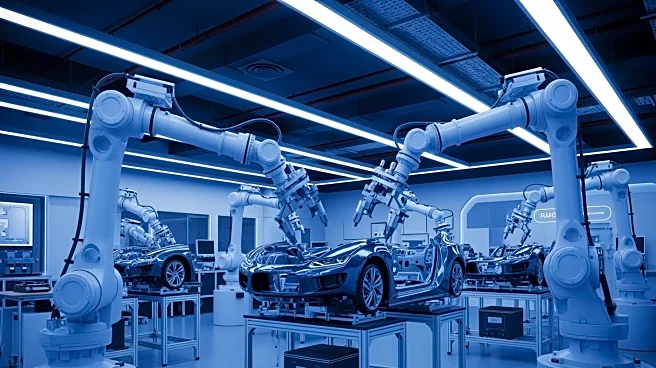What's Happening?
Georgia has inaugurated a new 89,000-square-foot training center in Bryan County aimed at preparing workers for jobs in electric and hybrid vehicle manufacturing. The facility, opened by Governor Brian
Kemp alongside Hyundai executives, is the first state facility dedicated to electric vehicles (EVs). It is designed to train up to 824 individuals at a time, equipping them with skills necessary for Hyundai's manufacturing processes. The center is part of Hyundai's broader project in Georgia, which is expected to create approximately 8,500 jobs by 2031. The opening follows a recent ICE immigration raid at Hyundai's EV battery plant near Savannah, where over 450 individuals were detained.
Why It's Important?
The establishment of this training center marks a significant investment in workforce development for the EV industry in Georgia, reflecting the state's commitment to becoming a leader in sustainable automotive manufacturing. This initiative is crucial for meeting the growing demand for skilled labor in the EV sector, which is pivotal for the industry's expansion and the transition to cleaner energy sources. The center's opening also highlights the importance of international partnerships, as evidenced by Governor Kemp's recent visits to South Korea and Japan to strengthen economic ties.
What's Next?
The training center will be operated by Georgia Quick Start, part of the Technical College System of Georgia, which will collaborate with Hyundai to ensure the training infrastructure aligns with real-world manufacturing processes. As the center ramps up operations, it is expected to play a key role in supporting Hyundai's production goals and the broader EV industry's growth in the region.
Beyond the Headlines
The center's opening could have long-term implications for Georgia's economic landscape, potentially attracting more automotive and technology companies to the state. It also underscores the importance of addressing immigration and labor issues, as seen in the recent ICE raid, which may influence future policy discussions.










